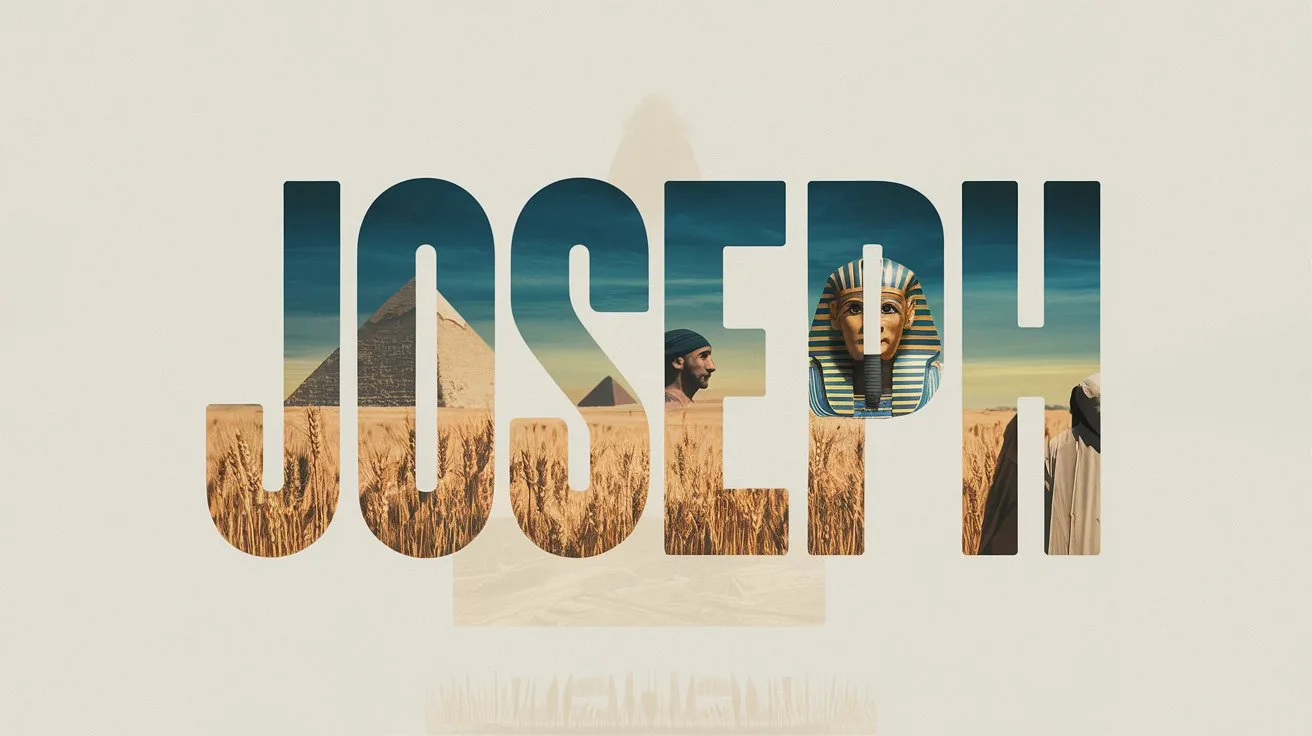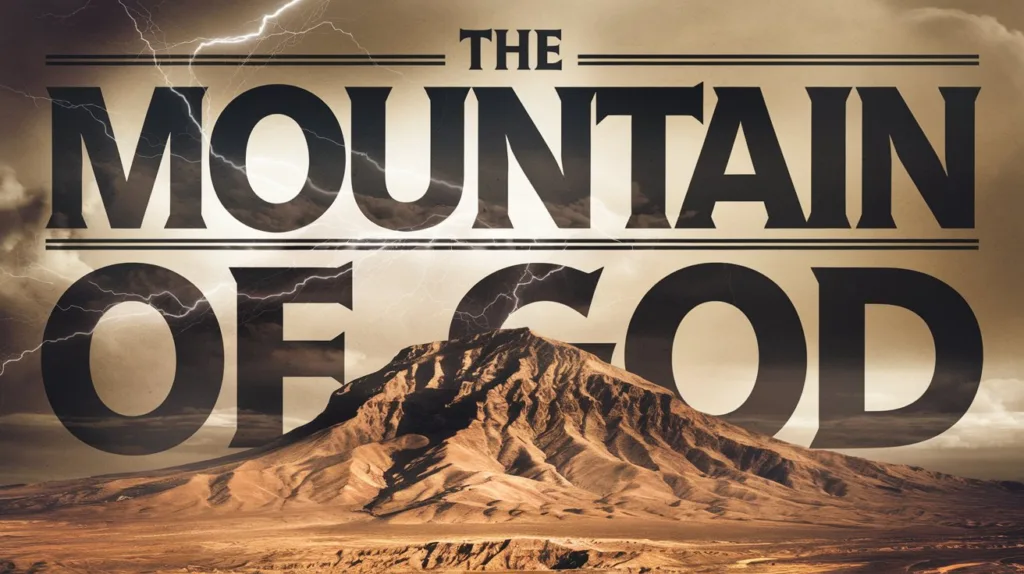The life of Joseph is one of the most profound testimonies of God’s providence and faithfulness found in Genesis 37–50. His account is not merely one of hardship and triumph, but of how God uses trials to refine us, position us, and fulfill His divine purposes.
Joseph’s journey begins with prophetic dreams that spark jealousy among his brothers. He is betrayed, sold into slavery, falsely accused, and imprisoned. Yet through every moment, “the Lord was with Joseph” (Genesis 39:2, 21). In the end, we see not only his rise to power in Egypt but also a beautiful display of mercy and reconciliation: a powerful foreshadowing of Christ.
Joseph’s Dreams and the Hatred of His Brothers
Joseph was the favored son of Jacob (Genesis 37:3), and his father made it known by giving him a tunic of many colors. This favoritism stirred resentment among his brothers. But the real breaking point came when Joseph began to have dreams from God that foretold his future authority.
“Please hear this dream which I have dreamed: There we were, binding sheaves in the field. Then behold, my sheaf arose and also stood upright; and indeed your sheaves stood all around and bowed down to my sheaf.” (Genesis 37:6-7)
His brothers responded in anger, saying,
“Shall you indeed reign over us? Or shall you indeed have dominion over us?” (Genesis 37:8).
When Joseph had another dream where the sun, moon, and eleven stars bowed before him (Genesis 37:9-10), even his father rebuked him. His brothers’ jealousy turned to hatred, and in their hearts, murder was conceived.
Betrayed, Stripped, and Sold for Silver
One day, Jacob sent Joseph to check on his brothers. As they saw him approaching from a distance, they conspired, saying,
“Look, this dreamer is coming! Come therefore, let us now kill him and cast him into some pit; and we shall say, ‘Some wild beast has devoured him.’ We shall see what will become of his dreams!” (Genesis 37:19-20).
Reuben, trying to prevent bloodshed, said,
“Let us not kill him. Shed no blood, but cast him into this pit which is in the wilderness, and do not lay a hand on him” (Genesis 37:21-22)
intending to rescue him later. But before he could, a caravan of Ishmaelites passed by, and Judah said,
“What profit is there if we kill our brother and conceal his blood? Come and let us sell him to the Ishmaelites, and let not our hand be upon him, for he is our brother and our flesh.” (Genesis 37:26-27).
For twenty pieces of silver, Joseph was sold (Genesis 37:28), much like Christ would later be betrayed for thirty (Matthew 26:15). His brothers tore his coat, dipped it in goat’s blood, and presented it to Jacob, who wept bitterly, believing his son was dead (Genesis 37:31-35). Meanwhile, Joseph was taken to Egypt; his journey of suffering had just begun.
Falsely Accused in Potiphar’s House
Joseph was sold to Potiphar, an officer of Pharaoh and captain of the guard (Genesis 39:1). Despite being a slave, “the Lord was with Joseph, and he was a successful man” (Genesis 39:2). Seeing that God blessed Joseph in all he did, Potiphar put him in charge of his entire household (Genesis 39:3-6). But Joseph’s faithfulness would soon be tested.
“Now Joseph was handsome in form and appearance. And it came to pass after these things that his master’s wife cast longing eyes on Joseph, and she said, ‘Lie with me.’” (Genesis 39:6-7).
Joseph refused, saying,
“How then can I do this great wickedness, and sin against God?” (Genesis 39:9).
But Potiphar’s wife would not relent. One day, she grabbed him by his garment, but he fled, leaving it behind (Genesis 39:12). Humiliated, she falsely accused him, and Joseph was thrown into prison (Genesis 39:14-20). Yet even in prison,
“the Lord was with Joseph and showed him mercy, and He gave him favor in the sight of the keeper of the prison” (Genesis 39:21).
Interpreting Dreams in the Dungeon
While imprisoned, Joseph met Pharaoh’s chief butler and chief baker, who each had troubling dreams. Joseph interpreted them, revealing that the butler would be restored and the baker executed (Genesis 40:1-22). Joseph asked the butler to remember him when he was restored, but he forgot him for two years (Genesis 40:23).
Then, Pharaoh himself had a disturbing dream: seven fat cows were devoured by seven thin cows, and seven full heads of grain were swallowed by seven withered ones (Genesis 41:1-7). None of Pharaoh’s magicians could interpret it. Finally, the butler remembered Joseph, saying,
“I remember my faults this day!” (Genesis 41:9).
Joseph was brought before Pharaoh and said,
“It is not in me; God will give Pharaoh an answer of peace.” (Genesis 41:16).
He revealed that the dream foretold seven years of abundance, followed by seven years of famine. Pharaoh, recognizing the Spirit of God in him, made Joseph second-in-command over all of Egypt (Genesis 41:38-41).
The Ultimate Test: Mercy Over Revenge
When the famine struck, Joseph’s brothers came to Egypt seeking food. They did not recognize him, but he knew them instantly (Genesis 42:6-8). He tested them, eventually revealing himself, saying:
“I am Joseph your brother, whom you sold into Egypt. But now, do not therefore be grieved or angry with yourselves because you sold me here; for God sent me before you to preserve life.” (Genesis 45:4-5).
Joseph forgave them completely, and the entire family, including Jacob, came to live in Egypt. Later, after Jacob’s death, the brothers feared Joseph would take revenge, but Joseph replied with one of the most profound statements in Scripture:
“But as for you, you meant evil against me; but God meant it for good, in order to bring it about as it is this day, to save many people alive.” (Genesis 50:20).
My Final Thoughts
Joseph’s life is a powerful testimony to God’s providence. Though betrayed, falsely accused, and forgotten, God was always working for good.
His life teaches us:
Trials refine us and prepare us.
God’s plan is always bigger than what we see.
True forgiveness reflects the heart of Christ.
Just as Joseph was betrayed yet exalted to save many, so was Christ, who was rejected yet rose to be the Savior of all who believe. The dream was never dead: it was waiting for God’s appointed time.





 Get the book that teaches you how to evangelize and disarm doctrines from every single major cult group today.
Get the book that teaches you how to evangelize and disarm doctrines from every single major cult group today.